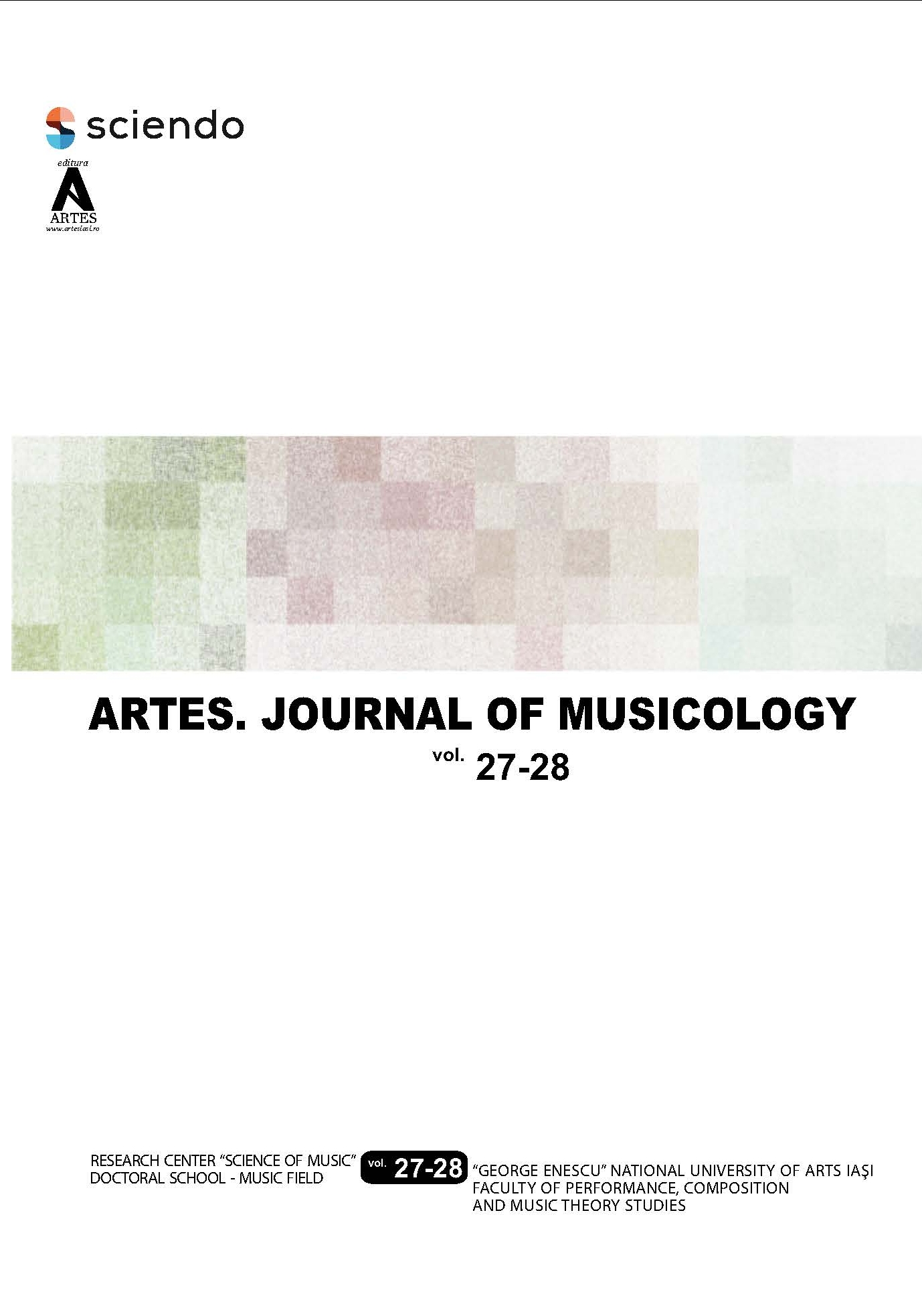The symphonic suite Scheherazade: the model of a multiprogrammatic conception
DOI:
https://doi.org/10.35218/ajm-2023-0001Cuvinte cheie:
symphonic suite, orientalism, narrative, multiprogramming, psychodrama, fictionRezumat
The symphonic suite Scheherazade (1888) attracts attention not only because of the beauty or oriental exoticism of Rimsky-Korsakov’s music. This programmatic musical narrative about a female narrator sparks the imagination itself. Moreover, the subject matter of this extraordinary work is primarily about the power of creative fantasy and equally about the ability of fiction to shape both human character and reality itself. All the more surprising is such a postmodern interpretation of the female figure in a work belonging to a national school of the 19th century. Or, in the terms of contemporary knowledge, this symphonic suite, having as its subject some stories from the famous collection 1001 nights, reveals itself as a genuine psychodrama in which the intelligence of a young woman wins in a merciless confrontation for survival, but by even curing the man who was going to kill her. In the end, it is surprising the case of this compositional conception, which without losing its expressive freshness, proves both its actuality and, above all, its fecundity through the ability to accommodate several hermeneutic scenarios in the same sound form.
Descărcări
Publicat
Număr
Secțiune
Licență
Copyright (c) 2023 Artes. Revistă de muzicologie

Această lucrare este licențiată în temeiul Creative Commons Attribution-NonCommercial 4.0 International License.

